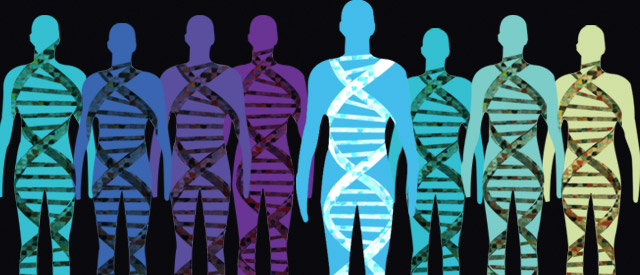Most health delivery systems around the globe such as the NHS are not infact based on health, most people do not enter a health system unless they are sick. It is therefore argued with some justification that a paradigm shift is required to turn the emphasis one hunded and eighty degrees, and that P4 Medicine Bioinformatics is the required technology driver to bring about this change.
Diagnostic Genotypes 
The molecular causes of many disorders have now been established, these can now be identified in patients with increasing levels of accuracy using genetic diagnostic testing systems (gene molecules are the bueprints for the molecules produced). Despite huge challenges due to the sheer amount of data processing and modelling required, this approach will underpin a whole new predictive, personalised, preventative and participatory (P4) approach to healthcare. Fundamental to the adoption of this approach is the need for improved translational bioinformatics and the outcome reports that inform integrative medical modelling.
These tests are rapidly moving from the research lab and into the routine clinical pathology setting with organisations such as Sophia Genetics providing the bioinformatic support and standard proocols that the labs require to provide accurate and meaningful results. This is the start of the next giant leap towards the whole concept of genetic diagnostic-led P4 medicine. In other words, bioinformatics is the solution for providing the necessary translation of huge datasets into a real clinical application.
Obtaining the results from genetic sequencing, comparing and translating this information with large patient datasets and providing meaningful results allows the shift from the traditional descriptive medical approach (what are your symptoms?), to a molecular-defined representation of disease and disease processes (these will be your symptoms!).
Gene Security
The implications for knowing the results of your genome test could not be more profound, and there will be serious ramifications with regard to how health (or sickness) care is funded in the future and how insurance premiums will be affected. Therefore the medical imperative for confidentiality remains paramount, especially when so much data needs to be processed and stored.
Sphia Genetics say, "When processing and storing genetic data, it’s imperative that both technical and organizational measures are taken to protect personal data against destruction or loss, alteration, unauthorized disclosure, or access".
For further information on P4 medicine.
See also The Online Catalog of Human Genes and Genetic Disorders OMIM
For NHS labs performing accredited genetic testing in the UK see UK Genetic Testing Network
For Accredited Genetic Consultant - see Dr James Mackay

